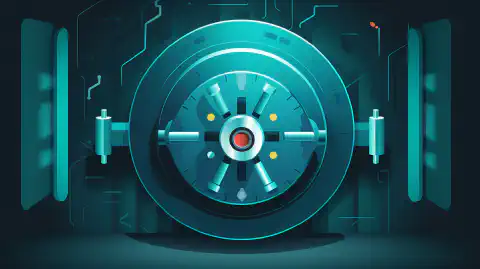The Power of CEUs in Cybersecurity: Staying Ahead in the Digital Battle

Table of Contents
Cybersecurity CEUs: What are They and Why You Need Them
Home
Introduction
In the constantly evolving field of cybersecurity, professionals must stay up-to-date with the latest developments in network technology to combat the ever-growing tactics of cybercriminals. Continuing Education Units (CEUs) play a vital role in ensuring cybersecurity professionals maintain their knowledge and skills. This article will delve into the concept of CEUs, their importance, and why they are crucial for cybersecurity professionals to stay ahead in the ongoing battle against cyber threats.
What are CEUs?
CEUs, or Continuing Education Units, are a measure used by certifying organizations to track and document an individual’s ongoing professional development. They represent 10 hours of educational work beyond the completion of a course or certification. While the term CEUs is commonly used, different organizations may use alternative terms such as CPEs (Continuing Professional Units) or ECEs (EC-Council Continuing Education).
The primary purpose of CEUs is to ensure that certified professionals stay updated with the latest advancements in their field. Just like other professions that require certification or licensing, cybersecurity professionals need to demonstrate their commitment to continued learning and staying informed.
Why are CEUs Important in Cybersecurity?
The importance of CEUs in the field of cybersecurity cannot be overstated. As cybercriminals evolve their tactics, cybersecurity professionals must stay one step ahead. CEUs allow professionals to keep pace with rapidly changing technologies, emerging threats, and evolving best practices.
Staying Current with Technology: CEUs help professionals stay informed about the latest advancements in network technology. This knowledge is essential for effectively securing systems and networks against cyber threats.
Adapting to Changing Threat Landscape: Cyber threats continue to evolve, and new vulnerabilities are discovered regularly. CEUs enable professionals to acquire the knowledge and skills needed to address emerging threats, protect critical assets, and mitigate risks.
Enhancing Professional Competence: By earning CEUs, cybersecurity professionals demonstrate their commitment to maintaining a high level of professional competence. This commitment boosts their credibility and establishes them as trusted experts in the field.
Compliance with Certifying Organizations: Most certifying organizations require professionals to earn CEUs to maintain their certification status. Failure to earn CEUs may result in losing certification, which can have consequences for employment, contract requirements, and professional growth.
How to Earn CEUs in Cybersecurity
Earning CEUs in cybersecurity involves engaging in various activities related to professional development. These activities allow professionals to expand their knowledge, gain practical experience, and contribute to the field. Here are some common methods of earning CEUs:
Attending Conferences: Participating in cybersecurity conferences and events provides valuable insights into the latest industry trends, technologies, and best practices. Certifying organizations often award CEUs for attending such events.
Taking Relevant Courses and Training: Completing courses and training programs that align with your certification can earn you CEUs. This includes college courses, independent training courses, webinars, and workshops. The number of CEUs earned is typically based on the duration of the course.
Teaching and Mentoring: Sharing your knowledge and expertise by teaching or mentoring others in the field can contribute to earning CEUs. Teaching relevant material or conducting training sessions allows professionals to demonstrate their competence while also earning CEUs.
Publishing Articles and Research: Authoring articles or research papers related to cybersecurity can earn CEUs. Contributing to reputable publications, journals, or even maintaining a blog within your certified subject areas can demonstrate your expertise and contribute to your CEU count.
Volunteering and Outreach: Some organizations recognize volunteer work as a valuable contribution to the cybersecurity community. Engaging in outreach programs, mentoring, or similar activities can earn CEUs while giving back to the industry.
Contributing to Exam Development: Active involvement in the development of certification exams can also earn CEUs. This participation demonstrates a deep understanding of the subject matter and contributes to the improvement of certification programs.
Government Regulations and Compliance
Government regulations play a crucial role in shaping the cybersecurity landscape and driving the need for CEUs. Here are some relevant regulations:
NIST Cybersecurity Framework: The National Institute of Standards and Technology (NIST) Cybersecurity Framework provides guidelines, standards, and best practices for enhancing cybersecurity in various industries. Adhering to these guidelines often requires cybersecurity professionals to maintain their knowledge through continuing education.
GDPR: The General Data Protection Regulation (GDPR) is a regulation in the European Union that aims to protect the privacy and data of EU citizens. Organizations handling EU citizen data must adhere to the GDPR, which often includes maintaining a knowledgeable and skilled cybersecurity workforce through ongoing education.
HIPAA: The Health Insurance Portability and Accountability Act (HIPAA) sets the standard for protecting sensitive patient data in the healthcare industry. Compliance with HIPAA requires cybersecurity professionals to stay updated on evolving threats and best practices.
FISMA: The Federal Information Security Management Act (FISMA) establishes security standards for federal government information systems. Compliance with FISMA often includes maintaining relevant certifications and earning CEUs to ensure the government’s cybersecurity workforce remains competent and knowledgeable.
______## Conclusion
In the dynamic field of cybersecurity, staying ahead of cyber threats is of utmost importance. Earning CEUs through continuous learning and professional development enables cybersecurity professionals to enhance their skills, stay current with technology, and adapt to evolving threats. By demonstrating their commitment to ongoing education, professionals can maintain their certification status, boost their credibility, and contribute to a safer digital world.
References:
- CompTIA Continuing Education Program
- ISACA Continuing Professional Education (CPE)
- (ISC)² Continuing Professional Education (CPE) Credits
- EC-Council Continuing Education
- NIST Cybersecurity Framework
- GDPR Official Website
- HIPAA Official Website
- FISMA Overview






